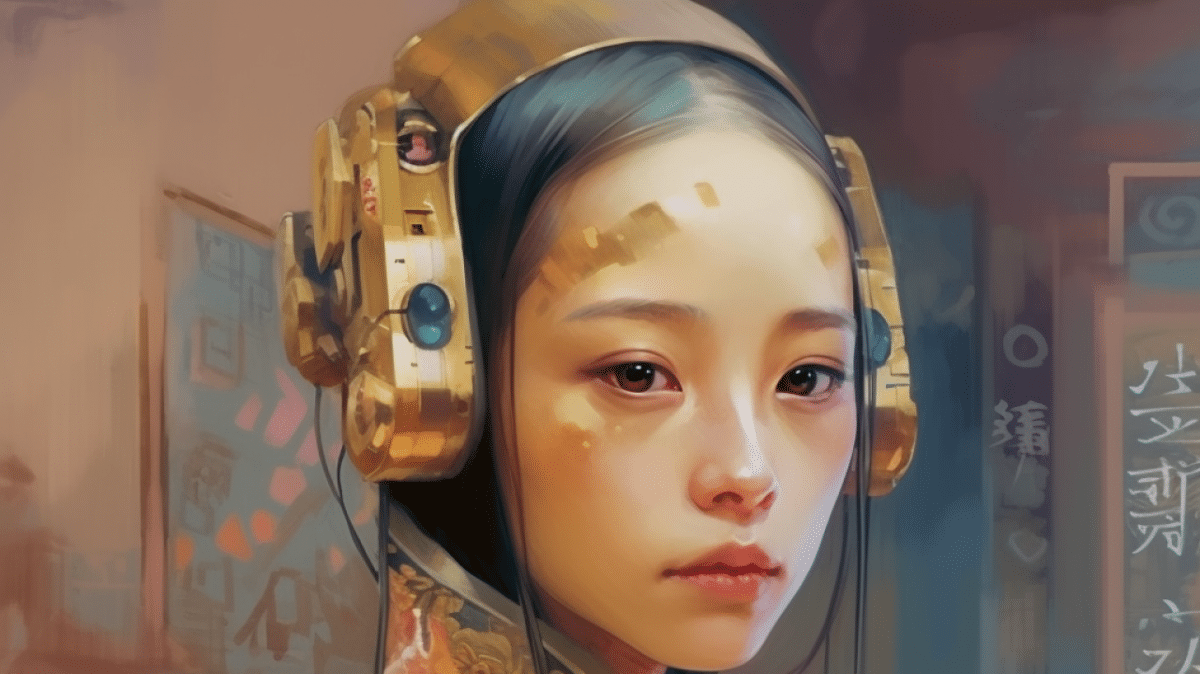There is no question – artificial intelligence is a powerful tool. Especially for the People’s Republic of China. She uses this every day for her dream of dictatorship: with camera, internet, app and chat controls of the citizens. Paradoxically, the very nature of the Chinese dictatorship could mean that the Middle Kingdom falls behind in the race for the dictatorship dream. As the recent presentation of their own AI chatbot called Ernie from Google’s counterpart Baidu impressively demonstrates.
Martin Kölling lives in Tokyo and regularly writes for MIT Technology Review about developments in Japan. In Asia, he can let off steam his penchant for technology.
Ernie (Enhanced Representation through Knowledge Integration) belongs to the large language models and uses deep learning algorithms to process and understand natural language fed with huge amounts of text and to give (more or less) meaningful answers to questions. Only the managers of the search giant didn’t dare to show their program live, they only played videos. Disappointed investors drove Baidu’s share price down during the presentation.
Perhaps investors suspected that Ernie could do less than Google’s Bard or even ChatGPT. However, it may not just be technological prowess that is holding Baidu back. Rather, it shows here that the Communist Party’s monopoly on power and opinion, enforced through censorship and repression, not only limits the intellectual horizon of people, but possibly also of the new, intelligent chat programs.
Censorship limits training data from AI model Ernie
Even the selection of texts for training the machine brain is probably more challenging in a dictatorship than in a democracy. Because in China censorship is likely to limit the text body, in democratic countries at most the “self-censorship” of the developers.
In the next move, Baidu must also ensure that the system’s responses do not contradict the guidelines of the Communist Party. In a country where, depending on topics currently classified as dangerous, even old posts are wiped off the Internet with almost no residue, mastering AI should therefore pose an interesting challenge for developers and censors.
Chat apps could also develop faster in the USA than in China. In the USA, established companies and start-ups can develop AI relatively unhindered. Because they are not threatened with earthly imprisonment for violations of a party’s monopoly on opinion and power. Instead, the developers – depending on their beliefs – only have to answer for their actions before their conscience or God and only in the rarest of cases before a court.
Social changes through artificial intelligence
This freedom has allowed OpenAI to make public a system that is immature even in the eyes of its creators. In a YouTube podcast with Lex Fridman, OpenAI boss Sam Altman explained that the system was still slow and full of bugs. But there is a system behind it. “We want to make our mistakes while the stakes are low,” Altman said. He believes that a trial-and-error approach will allow developers to find the good parts and the bad, improve them quickly. Because it is very important “to give people time to experience the technology, to design it with us and to give us feedback.”
The side effect, however, is that OpenAI and Microsoft have now triggered a rapid investment race in the private sector. This rush is likely to lead to a speculative bubble again at some point. But before that, the rain of money will trigger a flowering of AI systems that will accelerate their societal spread and use.
The jump is so big that Tesla CEO Elon Musk and more than 1,300 scientists and entrepreneurs issued an open letter this week calling for a six-month moratorium on development. But even if companies do follow suit, it would only be a postponement. The future will show whether a dictatorship like China’s can keep up in such a race.

(jl)
